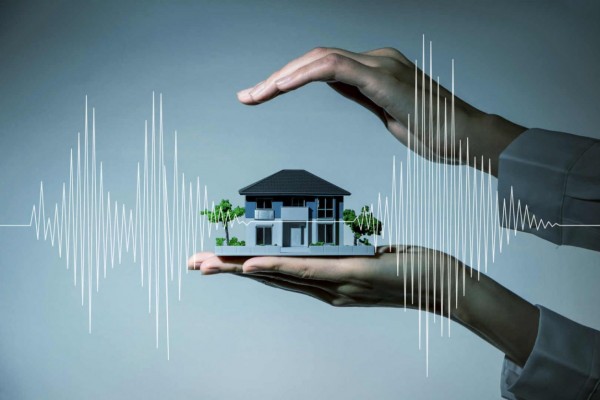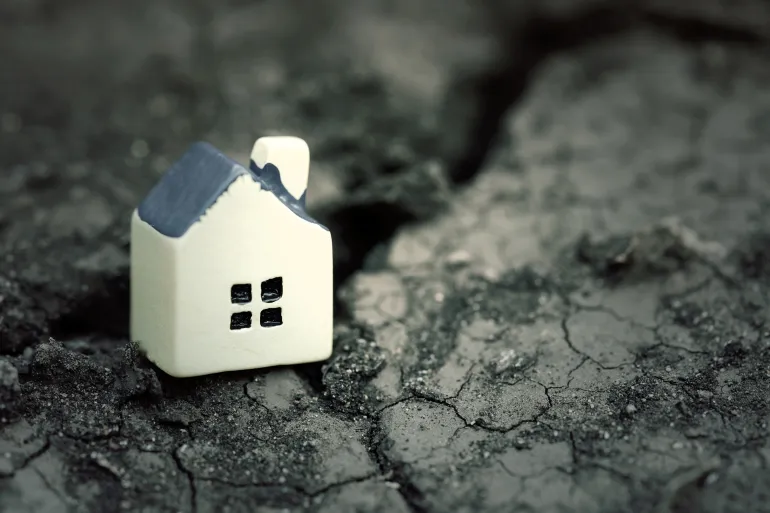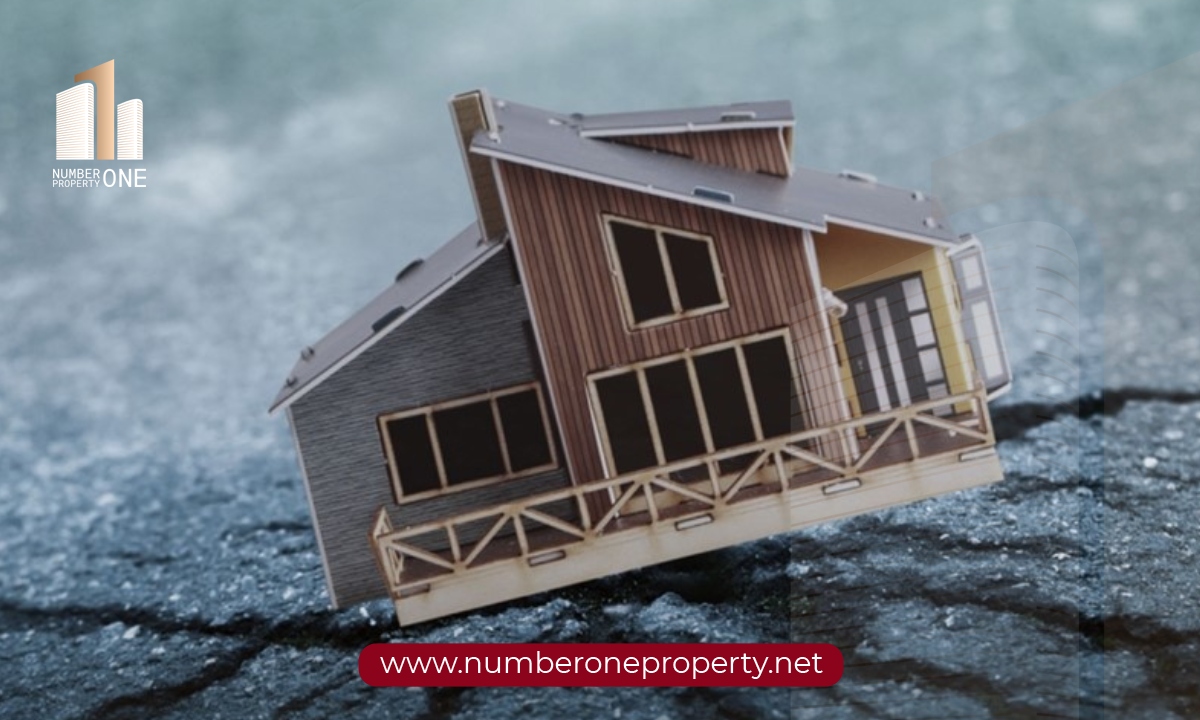Like any natural disaster, an earthquake can be an opportunity for real estate agents, construction companies, and investors. The impact of an earthquake on the real estate market can vary depending on the severity and location of the earthquake.
Generally speaking, earthquakes can have short-term and long-term effects on the real estate market.
In the short term
Immediately following an earthquake, there may be a decrease in demand for properties in the affected area due to safety concerns and damage to buildings. This can result in a temporary decrease in property values as buyers may hold off on purchasing until the situation stabilizes.
In the long term
The impact of an earthquake on the real estate market depends on the extent of the damage and the resources available for rebuilding. Suppose the damage is significant and the rebuilding process is slow or expensive. As a result, property values may continue to decrease, and the real estate market may take several years to recover.
However, if the rebuilding process is quick and effective, property values may stabilize or increase as buyers regain confidence in the area. Additionally, earthquakes can impact the availability and affordability of insurance coverage for properties in the affected area.
Insurance companies may be hesitant to insure properties in high-risk earthquake zones or may increase premiums, which can impact property values and buyer demand.
Real estate market after an earthquake
The real estate market after an earthquake is complex and depends on various factors, including the severity of the earthquake, the location, and the effectiveness of the rebuilding process. Here are some additional points to consider regarding the real estate market after an earthquake:
Location Matters: The impact of an earthquake on the real estate market varies depending on the location. The effect may be minimal if the earthquake occurs in an area with high demand and low supply. On the other hand, if the earthquake occurs in an area with low demand and high supply, the impact may be more severe.
Building Code Changes: An earthquake can change building codes, particularly in earthquake-prone areas. These changes can impact the cost of construction, which can, in turn, affect property values. As a result, buyers may be willing to pay more for a property that has been constructed to meet updated building codes.
Government Intervention: Government intervention can also impact the real estate market after an earthquake. For instance, the government may provide financial assistance to help rebuild damaged properties, which can help stabilize property values. Additionally, the government may impose restrictions on buildings in high-risk earthquake zones, impacting supply and demand in the real estate market.
Perception of Risk: The perception of risk also plays a role in the real estate market after an earthquake. If buyers perceive an area at high risk for earthquakes, they may hesitate to purchase property there, even if the risk is relatively low. On the other hand, if buyers perceive an area at low risk for earthquakes, they may be more willing to purchase property there, even if the risk is relatively high.
Market Conditions: The overall real estate market conditions can also play a role in the impact of a natural disaster on home values. In a strong market with high demand, the effect of a natural disaster on home values may be less severe than in a weak market with low demand.
Opportunities after an earthquake

There can be opportunities in the real estate market after an earthquake. Here are some examples:
Discounted Prices:
After an earthquake, some property owners may need to sell their damaged properties quickly, resulting in discounted prices. Investors with the financial resources to purchase and repair these properties can take advantage of these discounted prices and make a profit.
Rebuilding Efforts:
New construction and rebuilding efforts are often needed after an earthquake. This can create opportunities for developers, contractors, and other real estate professionals to invest in and profit from the rebuilding process.
Demand for Safe Housing
After an earthquake, there may be an increased demand for safe and secure housing, particularly in areas severely affected. Real estate professionals who can provide safe and secure housing options can take advantage of this increased demand and generate profits.
Opportunity Zones
In some cases, the areas affected by an earthquake may be designated as Opportunity Zones, where the government offers tax incentives to encourage economic growth and investment. Real estate professionals who invest in these Opportunity Zones may be able to take advantage of these tax incentives and generate profits.
How earthquakes and other natural disasters have affected home prices elsewhere
Earthquakes and other natural disasters have historically affected home prices depending on the event's severity, location, and local real estate market conditions. Natural disasters can significantly impact home prices, particularly in the short term. However, as rebuilding efforts occur over time and the economy recovers, home prices can gradually recover. It's important to note that the recovery process can take time, and the long-term impact on home prices will depend on various factors, including the severity of the event and the local real estate market conditions.
Natural disasters, including earthquakes, hurricanes, floods, wildfires, and others, can significantly impact home prices in affected areas. Here's how different types of natural disasters can affect home prices:
Earthquakes:
- Immediate Damage: Earthquakes can cause severe structural damage to homes, leading to decreased property values. The extent of the damage depends on factors like the earthquake's magnitude, depth, and proximity to populated areas.
- Fear of Future Events: Even if a region hasn't experienced a significant earthquake in a long time, the fear of future earthquakes can lead to decreased property values. People may be hesitant to buy or invest in homes in earthquake-prone areas.
- Retrofitting and Building Codes: In some cases, regions with a history of earthquakes may implement stricter building codes and retrofitting requirements, which can increase construction costs and, subsequently, property prices.
- Insurance Costs: Homeowners in earthquake-prone areas may face higher insurance premiums, making owning property more expensive.
Hurricanes and Flooding:
- Coastal Property Values: Homes along coastlines are particularly vulnerable to hurricanes and flooding. After significant hurricane events, property values in these areas can decrease due to the risk of future storms and the potential for increased insurance costs.
- Flood Zones: Properties in flood-prone zones may experience declining values as potential buyers become wary of the risk of flooding and the associated costs.
- Infrastructure Damage: Hurricanes can cause extensive damage to infrastructure, including roads, utilities, and public services. This can indirectly affect home values by reducing the appeal of living in the affected area.
Wildfires:
- Destruction and Evacuations: Wildfires can destroy homes and force evacuations, leading to a decline in property values in affected areas.
- Insurance Costs: Homeowners in wildfire-prone regions may see increased insurance premiums or difficulty obtaining coverage, impacting property affordability.
- Health Concerns: Wildfire smoke and air quality issues can also impact property values if potential buyers are concerned about health risks associated with living in fire-prone areas.
Tornadoes:
Tornadoes can cause widespread damage to homes, and the severity of the impact on property values depends on the region's scale and frequency of tornadoes. Home Insurance: Areas prone to tornadoes may have higher home insurance costs, affecting property affordability.
Volcanic Eruptions:
Volcanic eruptions can damage property, including ashfall and lava flows, affecting property values in nearby areas. Evacuations and Disruptions: Eruptions can force evacuations and disrupt daily life, impacting the desirability of living in affected regions.
It's essential to note that the impact on home prices can vary widely based on the severity of the disaster, the region's preparedness and resilience measures, and market conditions. Additionally, government policies, disaster relief efforts, and rebuilding initiatives can influence the recovery of property values in disaster-affected areas over time. Homebuyers and investors often assess these factors when considering property purchases in regions prone to natural disasters.
Factors that Determine the Impact of a Natural Disaster on a Home's Value

The impact of a natural disaster on a home's value is influenced by various factors, including:
- Severity of the Disaster: The extent of damage caused by the natural disaster is a crucial factor. Homes that have suffered extensive damage, such as structural damage or destruction, typically experience a more significant decrease in value than those with minimal damage.
- Proximity to Disaster: Homes located closer to the epicenter or primary impact zone of a natural disaster, such as an earthquake's fault line or the eye of a hurricane, are more likely to be adversely affected regarding property value.
- Type of Disaster: Different types of natural disasters affect property values. For instance, homes in flood-prone areas might decline in value after a flood event, while wildfires may impact homes in wildfire-prone regions.
- Frequency of Disasters: Areas that regularly experience natural disasters may see a cumulative negative effect on property values over time. Frequent disasters can make potential buyers or investors wary of the area.
- Mitigation Measures: The presence of effective mitigation measures and infrastructure can lessen the impact on property values. For example, well-maintained levees or flood control systems in flood-prone areas can help protect homes and maintain property values.
- Insurance Availability and Costs: The availability and affordability of insurance coverage for natural disasters can significantly affect property values. If insurance is costly or difficult to obtain due to a high risk of catastrophe, it can deter potential buyers and depress property values.
- Government Policies and Regulations: Local government policies and regulations related to land use, building codes, and disaster preparedness can impact property value. Stricter building codes and zoning regulations aimed at reducing disaster risk can increase construction costs but also enhance property resilience and deals in the long term.
- Economic Factors: The state of the local and national economy can influence how natural disasters impact property values. In a strong economy, homeowners may have more resources to rebuild and recover, while in a weaker economy, the impact may be more severe.
- Community Resilience: Well-prepared Communities with disaster response plans and exhibit resilience in the face of disasters may see a faster recovery in property values than areas that lack such preparedness.
- Public Perception and Stigma: Negative perceptions and stigma associated with a particular disaster can persist long after the event. Potential buyers may be hesitant to invest in an area with a history of disasters, even if the physical damage has been repaired.
- Reconstruction and Recovery Efforts: The speed and effectiveness of reconstruction and recovery efforts can impact property values. Timely and efficient rebuilding can help restore property values more quickly.
- Market Conditions: The broader real estate market conditions, including supply and demand dynamics, interest rates, and buyer preferences, can influence how natural disasters affect property values. For example, property values may rebound quickly in a hot seller's market.
It's essential to recognize that the impact of natural disasters on home values can vary widely from one situation to another, and it may take years for affected areas to recover fully. Homeowners, real estate investors, and policymakers should consider these factors when assessing the potential risks and opportunities associated with properties in disaster-prone regions.
Real Estate Market in Turkey After an Earthquake

After a significant earthquake, the real estate market in Turkey, especially in cities like Istanbul, experienced substantial shifts in dynamics. Influenced by various economic factors, the housing market is susceptible to natural disasters like earthquakes. After such events, local and global influences are pivotal in shaping the housing market.
One of the most immediate effects of an earthquake is on housing prices. Property prices can decline, especially in areas with a higher earthquake risk or significant damage. Real estate agents and developers often need to adjust their strategies to adapt to these changes in housing markets. The earthquake damage can raise awareness about the importance of earthquake-resistant construction, prompting real estate development projects that prioritize safety.
Istanbul, a central hub for real estate investment opportunities, is significantly affected by any regional earthquake. The Turkish central bank and real estate authorities play a crucial role in stabilizing the market by implementing policies that address the impact of natural disasters on property prices and ownership. Real estate website data and hedonic models are used to analyze the effects of ground motion on property values and to provide valuable insights for investors and homeowners.
While earthquakes can harm property values in affected areas, neighboring cities may experience a surge in demand for real estate as people seek safer housing options. Multiple economic factors, both local and global, shape how the real estate market responds to natural hazards. In the vast majority of cases, the housing market does eventually recover, showcasing the resilience of the real estate sector in the face of adversity.
In conclusion
Natural disasters, including earthquakes, can present unique challenges in the Turkish real estate market. However, they also underscore the market's ability to adapt and evolve, making it an attractive destination for savvy investors. The initial dip in property prices post-earthquake often paves the way for excellent investment opportunities, as the Turkish government continually enhances regulations and promotes safety in real estate development. Investors can confidently participate in the market's recovery and long-term growth by leveraging data-driven insights and working with reputable real estate agents. Turkey's strategic location, strong economic fundamentals, and the resilience of its real estate sector make it a promising destination for those looking to own and invest in real estate.
Read Also:


